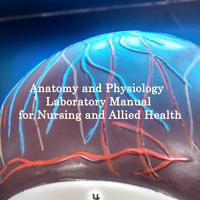Search
Books+
Searching 1,730 books
Search related to the career Naturopathic Physician
Education and Training:
1. Obtain a bachelor's degree: Start by earning a bachelor's degree in a relevant field such as biology, chemistry, or pre-medical studies. This provides a strong foundation for further studies in naturopathic medicine.
2. Enroll in a naturopathic medical school: Apply to an accredited naturopathic medical school. These programs typically require four years of study and provide comprehensive training in naturopathic medicine. Some well-known naturopathic medical schools include Bastyr University, National University of Natural Medicine, and Southwest College of Naturopathic Medicine.
3. Complete the curriculum: During your naturopathic medical school program, you will study various subjects such as anatomy, physiology, pathology, clinical diagnosis, botanical medicine, nutrition, homeopathy, and physical medicine. You will also gain hands-on clinical experience through internships and supervised practice.
Licensing and Certification:
4. Pass licensing exams: After completing your naturopathic medical program, you will need to pass the licensing exams required by your state or province. These exams assess your knowledge and competency in naturopathic medicine.
5. Obtain a license: Apply for a license to practice as a naturopathic physician in your jurisdiction. Licensing requirements vary by location, so make sure to fulfill all the necessary criteria, which may include submitting an application, providing documentation, and paying fees.
6. Consider board certification: Although not mandatory, obtaining board certification can enhance your credibility and demonstrate your expertise in naturopathic medicine. Organizations such as the American Board of Naturopathic Medicine offer certification exams that assess your knowledge and skills.
Continuing Education:
7. Stay updated with advancements: As a naturopathic physician, it is crucial to stay abreast of the latest research, developments, and techniques in the field. Attend conferences, workshops, and seminars to continue learning and expanding your knowledge.
8. Maintain your license: Renew your license regularly as per the requirements of your jurisdiction. This may involve completing continuing education credits to demonstrate your commitment to professional development.
Building Your Practice:
9. Gain practical experience: After obtaining your license, gain practical experience by working under the supervision of experienced naturopathic physicians or in established clinics. This will help you refine your skills, build your reputation, and establish a network of professional contacts.
10. Establish your own practice: Once you feel ready, consider opening your own naturopathic practice. This involves finding a suitable location, setting up your clinic, marketing your services, and building a client base.
Remember to check the specific requirements and regulations in your jurisdiction, as they may vary. Good luck on your journey to becoming a naturopathic physician!
Source: Various AI tools
Professors
Searched in English.















































